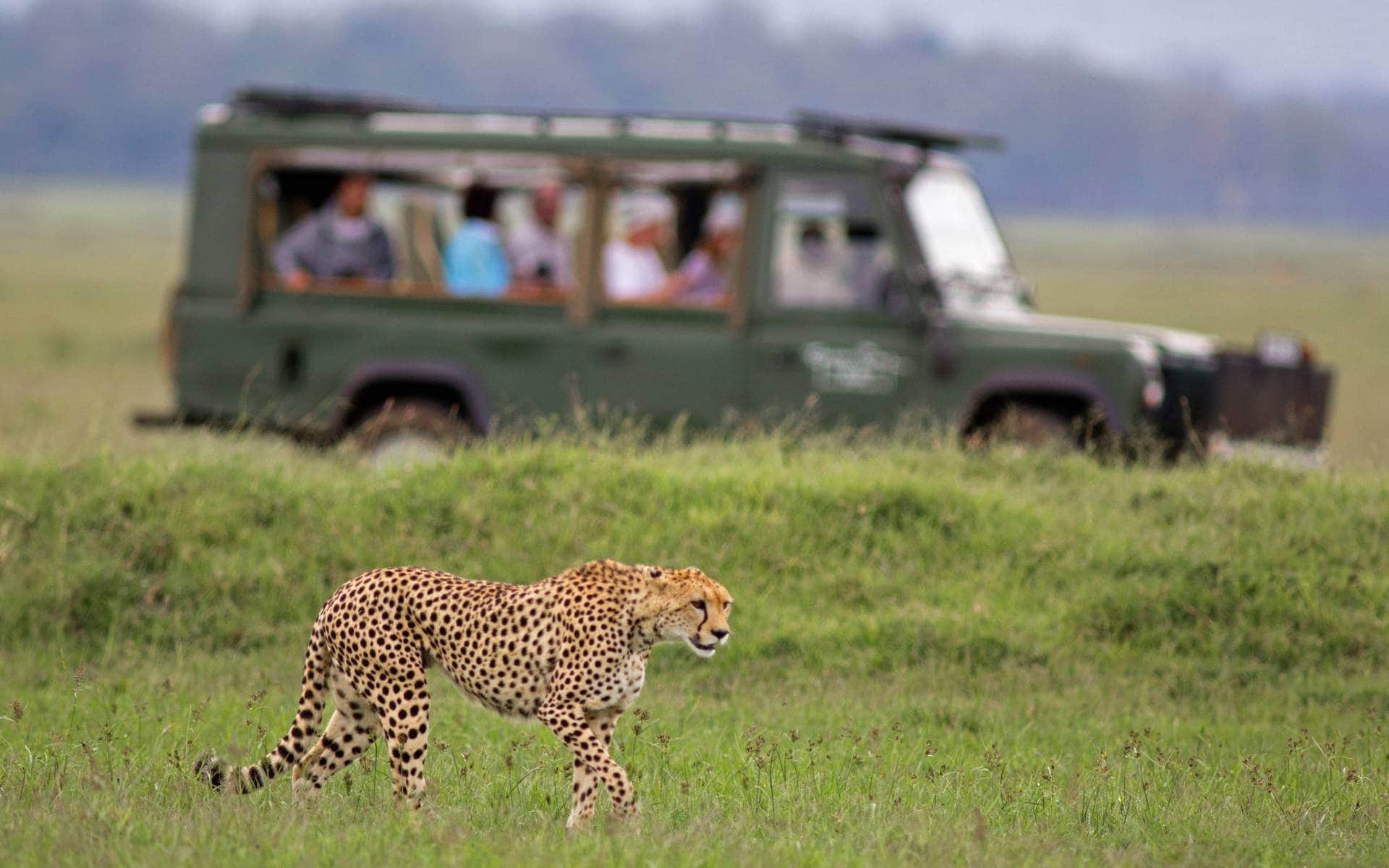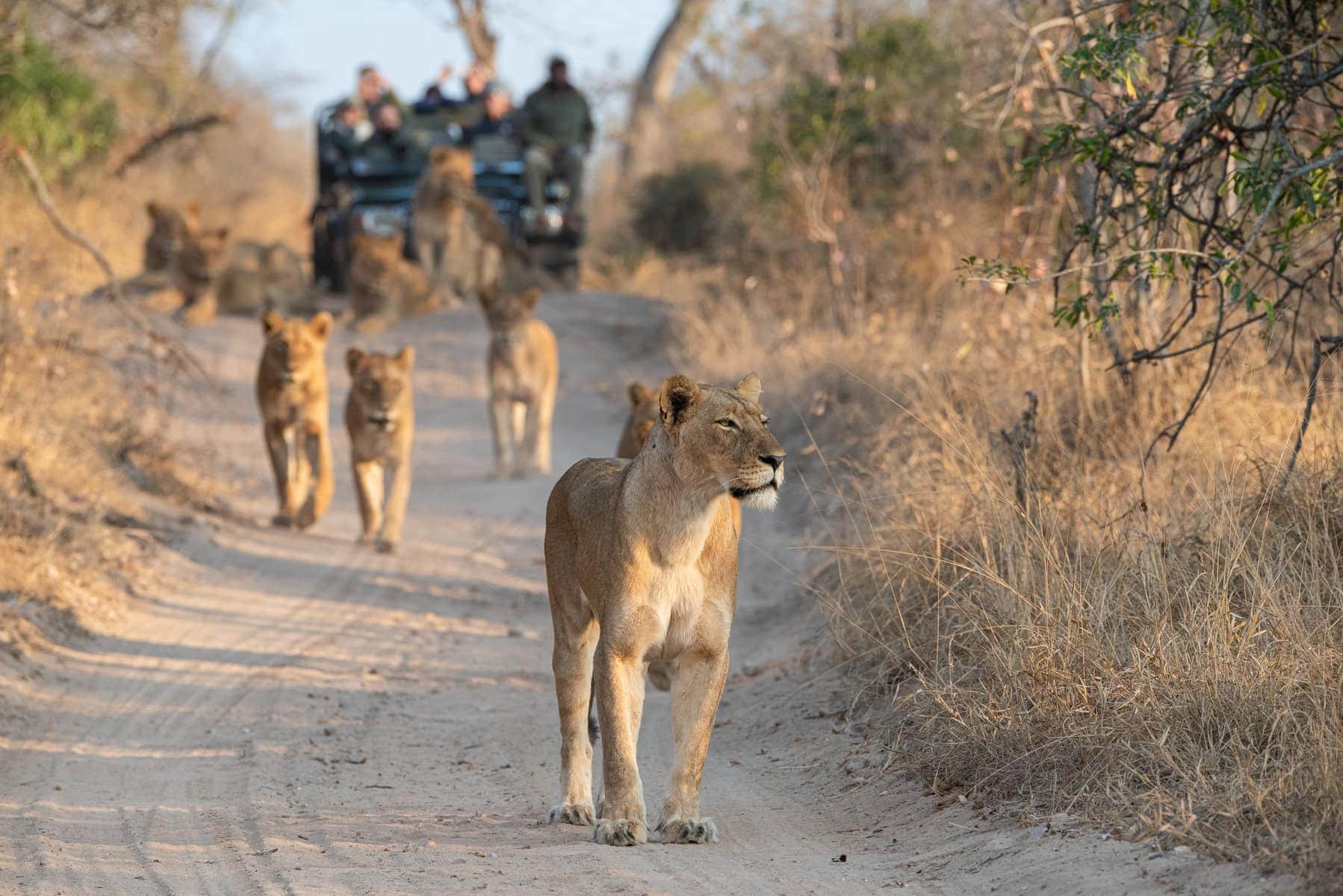Picture the sun rising over the Serengeti as you watch vast herds of wildebeest cross the plains. Along the edge of the herd, you realise that a lion is looking for any weaknesses to take advantage of. This is just one possible scene from a Great Migration safari in Tanzania, an experience popular among travellers to Africa.
South Africa’s Big Five safaris and Botswana’s Okavango Delta adventures are other preferred choices. Whatever your dream trip, a safari in Africa is within reach. Planning an African safari is the first step, and understanding the booking timeline is the key to ensuring an unforgettable journey.
When’s the Best Time of the Year to Go on an African Safari?

The rhythm of the seasons dictates the best time to go on a safari. Generally, the dry winter months (June to October) create the ideal environment to spot big game animals, like elephants and lions. The parched earth thins the vegetation, revealing wildlife congregating around the remaining precious water sources.
Imagine stopping during a game drive to watch elephants playing in the water and giraffes lowering their long necks to get a drink.
For a classic Big Five safari to see elephants, buffaloes, leopards, lions, and rhinos, the dry season is your best bet. But if you’re a birdwatcher itching to see migratory species in parks or you want to increase your chance of seeing baby animals, the wetter summer months (November to May) might be your calling.
- When to go to South Africa: The best time to visit Kruger National Park, one of the world’s most iconic safari destinations, is during the dry season from May to September. This is when the bush is at its most revealing. Summer (October to March) paints the landscape with lush green hues and offers exceptional birdwatching as migratory birds fly into the park.
- When to go to Kenya: The dry season unveils the Great Migration’s epic drama in the Masai Mara, most notably from August to October. For bird lovers, October to April is a symphony of colour as migratory species land in the country. April and May are the two rainiest months, but you do have the heartwarming opportunity to see animals with their little ones.

- When to go to Tanzania: Witness the Great Migration’s river crossings in the Serengeti National Park during the dry season (July to early October) – a highlight of a Great Migration safari. For a more intimate experience, consider January or February for the calving season. Birdsong reaches its crescendo from November to April.
- When to go to Botswana: May, June, and July make up the peak time of the year to go on an Okavango Delta safari. Mokoro trips through the submerged floodplains are a must! Game viewing is better in Moremi Game Reserve during the dry season, so you have a better chance of spotting leopards, lions, and wild dogs.
How Far in Advance Should You Book a Safari?
Luxury safaris, especially those featuring experiences like witnessing the Great Migration in Tanzania, trekking to see gorillas in Uganda, or escaping to remote camps in Botswana, demand careful planning. For these extraordinary adventures, booking 12 to 18 months in advance is recommended, especially if you want to travel during peak seasons.
Even the “green season” (named for the lush vegetation), with its quieter charm, now beckons more travellers. Our safari planners are seeing an increase in bookings for the low season, with safari-goers looking forward to more secluded experiences. So, it’s still recommended to book your trip six to 10 months in advance.
Why Should You Book Your Safari in Advance?
Advance booking not only guarantees availability at the most sought-after accommodations but also allows you to curate your dream itinerary, every detail reflecting your personal vision. While last-minute opportunities can arise through special offers, planning ahead offers peace of mind and ensures a seamless and truly unforgettable safari.
Author: Paula Rabeling
Published: 7 February 2025